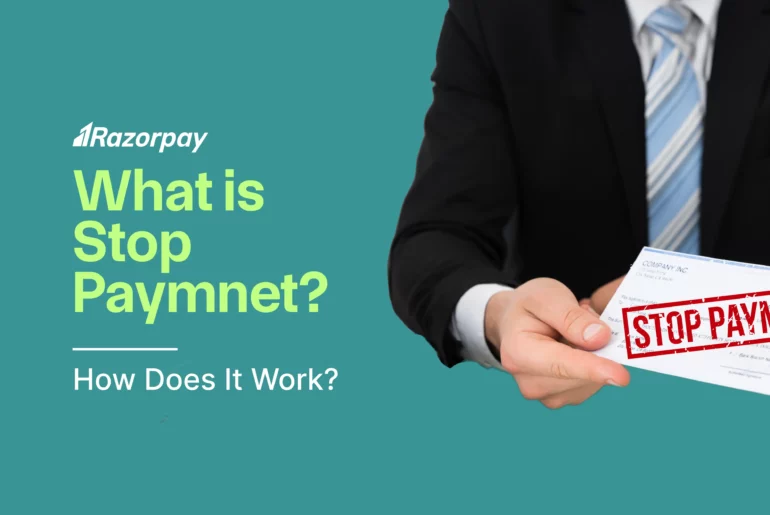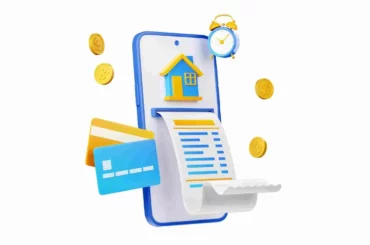Stop payment is a banking feature that allows you to request the halting of a specific cheque or electronic payment. It is essential to understand how stop payment works to manage your financial transactions effectively.
In this article, we will discuss the meaning of stop payment, the reasons for initiating it, the process involved, and any associated fees. By the end, you will have a comprehensive understanding of stop payment and its practical aspects.
Table of Contents
What is a Stop Payment?
Stop payment meaning is a financial instruction given by an accountholder to their bank, requesting the prevention of a specific cheque or electronic payment from being processed. You might need to initiate a stop payment in several scenarios, such as lost or stolen checks, unauthorized transactions, or payment disputes. By requesting a stop payment, you can ensure that the intended recipient does not receive the funds. However, it is important to note that banks may charge a fee for this service.
Related Read: What is Cheque Bounce? What are the Common Reasons for a Cheque Bounce?
How Does a Stop Payment Work?
To initiate a stop payment, you need to follow a few steps –
-
Contact your bank and inform them about your request. You can usually do this by visiting the bank in person, calling their customer service helpline, or using their online banking portal.
-
Provide the relevant information about the payment that you want to stop. This includes details such as the cheque number, the payment amount, and the payee’s name. It is important to be as specific as possible to ensure that the correct payment is stopped.
-
Keep in mind that stop payments must be requested before the payment is processed via the payment gateway. Once a payment has been processed, it cannot be stopped. Therefore, it is crucial to act promptly if you realize that you need to request a stop payment.
Additionally, it is important to be aware of any stop-payment fees that your bank might charge for initiating this transaction.
How to Stop Payment on a Cheque?
A stop payment order will prevent your cheque from being deposited or cashed.
To initiate a stop payment request, promptly contact your bank. Inform them about the specific cheque you want to stop payment on and provide relevant details, such as the cheque number, date, and payee information. The bank will take necessary actions to fulfil this request.
Some banks may require you to visit their branch in person or submit a written request. Keep in mind that there may be fees associated with initiating a stop payment, and these fees can vary between banks and circumstances.
Reasons to Issue a Stop Payment
There can be multiple situations where you might need to initiate a stop payment on a cheque. Here are some common cheque-stop-payment reasons:
-
Lost or stolen cheque: If you have misplaced a cheque or it has been stolen, it is crucial to request a stop payment immediately. This will prevent unauthorized individuals from cashing the cheque.
-
Payment dispute: In case of a disagreement or dispute with the payee, you can choose to issue a stop payment until the conflict is resolved.
-
Insufficient funds: If you realize that there aren’t enough funds in your account to cover the payment, placing a stop payment prevents the cheque from bouncing and incurring additional fees.
-
Change in financial circumstances: If your financial circumstances change unexpectedly, such as losing your job or experiencing an emergency expense, you may need to halt payments temporarily by issuing a stop payment until you can reassess your financial situation.
Other Stop Payment Considerations
It is essential to understand when and how to use stop payment effectively. Here are some key points to consider:
What is a Stop Payment Indicator?
A stop payment indicator is a flag or notice set by an account holder to prevent the processing of a specific payment, typically a cheque. It avoids unauthorized payments, addresses errors, and resolves payment-related issues. When you place a cancel payment link request, the bank will halt the transaction and prevent the funds from being transferred.
Are Stop Payment Orders Legal?
Stop payment orders are generally legal and permitted by banking regulations. They allow you to request your bank to halt the processing of a specific cheque or electronic payment. However, it is important to understand the terms and conditions of your bank regarding stop payment, as they can vary. You can effectively utilize this banking feature when needed by understanding the legality and requirements of stop payments.
Stop Payment Costs and Fees
There are different fees associated with stopping payment on cheques when it comes to stop payment requests. The exact fees can vary between banks and financial institutions, so checking with your bank for accurate information is essential. Typically, the fees for initiating a stop payment range from ₹100 to ₹500 per request.
Costs of Stop Payments on Cashier’s Cheques
A cashier’s cheque is a secure form of payment that guarantees funds are available. If you need to initiate a stop payment on a cashier’s cheque, higher fees may be involved. It is advisable to contact your bank directly to understand the specific costs associated with stopping payment on a cashier’s cheque.
Frequently Asked Questions (FAQs)
1. Do stop payment orders always work?
Stop payment orders are not foolproof. There is always a possibility that the transaction has already been processed before your stop payment request is executed.
2. Can I stop payment online?
Yes, many banks offer the convenience of initiating a stop payment online through their Internet banking platforms. Online requests are often processed faster than paper-based requests, and you will usually receive confirmation of your stop payment order via email or SMS.
3. How do I order a stop payment?
You can typically initiate the process through your bank’s online banking portal or by contacting customer service. Provide the necessary details, such as the cheque number, amount, and payee’s name.
4. Can I stop payment on a cashier’s cheque or money order?
Yes, although cashier’s cheques and money orders are considered more secure forms of payment, you can still request a stop payment on them if needed. However, it is essential to note that some banks may charge higher fees for them.
5. How long does a stop payment on a cheque last?
The duration of a stop payment order can differ based on the bank and the type of cheque involved. Generally, banks place an initial hold on the cheque for around six months. However, you can extend this period by providing written instructions before expiration.



